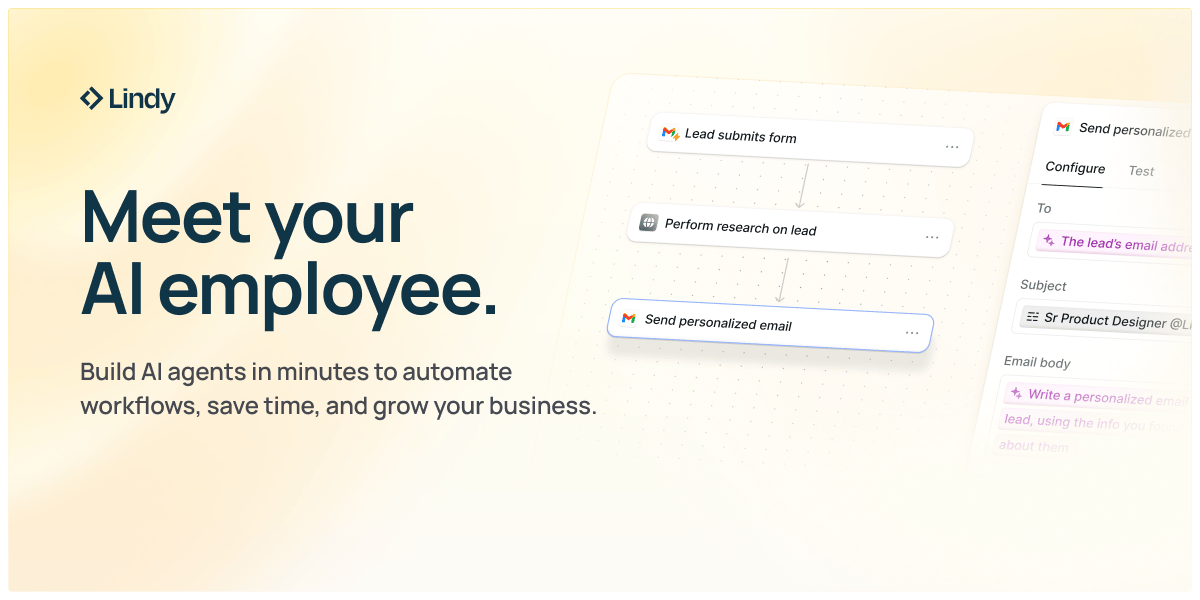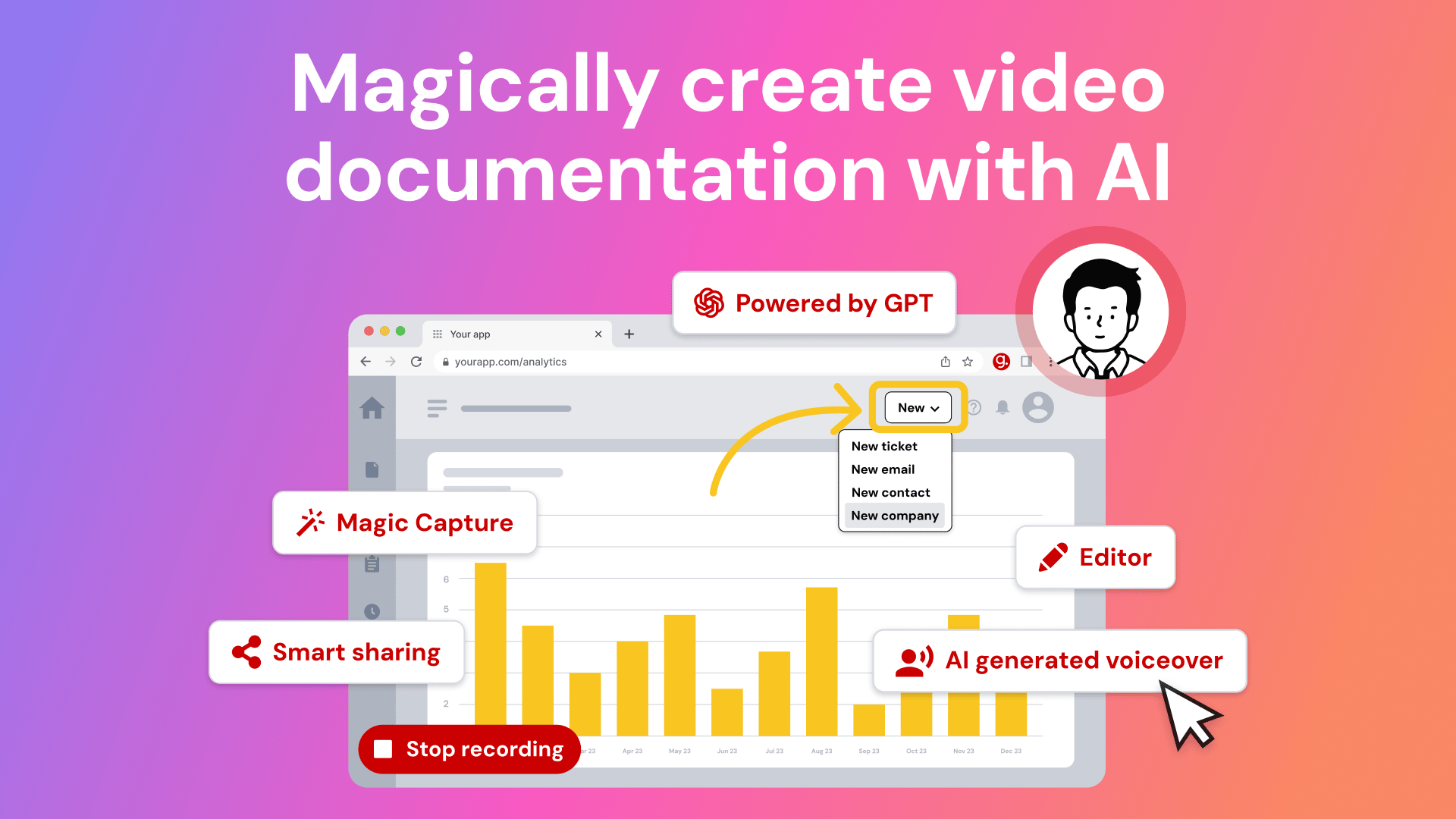- Generative AI Art
- Posts
- China's mini-fridge AI cuts power by 90%
China's mini-fridge AI cuts power by 90%
PLUS: OpenAI's new music tool and Google’s surprise lead in AI media
Researchers in China have revealed a new AI server about the size of a mini-fridge. This development could be a major breakthrough for creating more sustainable and efficient AI hardware.
The system reportedly reduces power consumption by 90%, challenging the need for massive, energy-intensive data centers. As AI’s energy demands grow, will this type of hardware make powerful models more accessible and sustainable on a global scale?
PRESENTED BY LINDY AI
The Simplest Way To Create and Launch AI Agents
Imagine if ChatGPT, Zapier, and Webflow all had a baby. That's Lindy.
With Lindy, you can build AI agents and apps in minutes simply by describing what you want in plain English.
From inbound lead qualification to AI-powered customer support and full-blown apps, Lindy has hundreds of agents that are ready to work for you 24/7/365.
Stop doing repetitive tasks manually. Let Lindy automate workflows, save time, and grow your business.
Today in AI:
Brave published a new report detailing how AI browser agents can be hijacked through "unseeable prompt injections," where malicious commands are hidden inside images or on webpages.
The Wall Street Journal argued in a new column that Microsoft needs to provide clearer financial disclosures on its OpenAI partnership, leaving investors to guess the true economics and risks involved.
MiniMax launched its M2 model family, an open-source model and agent that reportedly ranks as the fifth-smartest AI currently available.
Hugging Face introduced the Massive Legal Embedding Benchmark (MLEB), a new domain-specific evaluation for testing how well AI models understand and process legal text.
Top Stories:
China’s ‘mini-fridge’ AI server
OpenAI’s new music generation tool
Google’s surprise lead in AI media
What's new? Chinese researchers have unveiled a new AI server the size of a mini-fridge, marking a potential breakthrough in creating sustainable and efficient AI hardware.
What matters?
The system’s key innovation is its 90% reduction in power consumption compared to current, comparable AI servers.
Its compact, mini-fridge-sized form factor challenges the need for massive, centralized data centers for high-performance computing.
This breakthrough in sustainable hardware could significantly lower the operational costs and environmental impact of training and running large AI models.
Why it matters?
TThis development addresses one of the biggest hurdles for AI's future: the enormous energy demand of data centers. More efficient hardware like this could make powerful AI more accessible and sustainable on a global scale.
PRESENTED BY GUIDDE
Create how-to video guides fast and easy with AI
Tired of explaining the same thing over and over again to your colleagues?
It’s time to delegate that work to AI. Guidde is a GPT-powered tool that helps you explain the most complex tasks in seconds with AI-generated documentation.
1️⃣Share or embed your guide anywhere
2️⃣Turn boring documentation into stunning visual guides
3️⃣Save valuable time by creating video documentation 11x faster
Simply click capture on the browser extension and the app will automatically generate step-by-step video guides complete with visuals, voiceover and call to action.
The best part? The extension is 100% free
What's new? OpenAI is reportedly developing AI models for music generation, positioning itself to compete directly with rising audio platforms like Suno and Udio.
What matters?
To build its training data, OpenAI is collaborating with Juilliard School students to create high-quality musical annotations across various instruments and styles.
The technology would enable users to create songs from text prompts, generate soundtracks for video, and even compose jingles for advertising campaigns.
This marks the company's third attempt to crack AI music, having previously abandoned earlier projects like MuseNet and Jukebox in 2019-2020.
Why it matters?
Integrating a music model directly into ChatGPT would give nearly a billion users access, potentially making AI music creation a mainstream activity overnight. This move signals OpenAI’s ambition to expand beyond text and image generation, directly targeting the rapidly growing creator economy.
What's new? A new ‘State of Generative Media’ report from Artificial Analysis reveals that Google’s tools are the preferred choice for most AI media creators, outpacing popular rivals like OpenAI and Midjourney.
What matters?
Google’s Gemini is used by 74% of creators for image generation, while its Veo model is the top choice for 69% of video creators.
The report shows image generation has an 89% adoption rate among personal creators, while video generation lags behind at 58% but is growing quickly.
Businesses are seeing surprisingly fast returns on generative media, with 65% achieving ROI within a year by prioritizing cost reduction over pure model quality.
Why it matters?
This data indicates that while public attention often focuses on chatbot dominance, Google has quietly captured the generative media market. For professionals, this highlights how tools that deliver on quality and cost-effectiveness are becoming the practical standard for creative workflows.
PRESENTED BY SUPERHUMAN AI
Go from AI overwhelmed to AI savvy professional
AI will eliminate 300 million jobs in the next 5 years.
Yours doesn't have to be one of them.
Here's how to future-proof your career:
Join the Superhuman AI newsletter - read by 1M+ professionals
Learn AI skills in 3 mins a day
Become the AI expert on your team
Essential AI Guides - Reading List:
Let us know!
What did you think of today's email?Before you go, please give your feedback to help us improve the content for you! |
Work with us
Reach 100k+ engaged Tech Professionals, Engineers, Managers and decision makers. Join brands like MorningBrew, HubSpot, Prezi, Nike, Ahref, Roku, 1440, Superhuman, and others in showcasing your product to our audience. Get in touch now →



